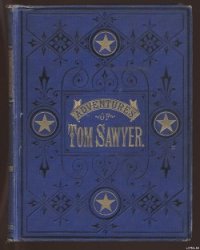Английский язык с Марком Твеном. Принц и нищий (Mark Twain. The Prince and the Pauper) - Twain Mark (читать хорошую книгу полностью .txt) 📗
By and by they invaded a small farmhouse and made themselves at home while the trembling farmer and his people swept the larder clean to furnish a breakfast for them. They chucked the housewife and her daughters under the chin while receiving the food from their hands, and made coarse jests about them, accompanied with insulting epithets and bursts of horse-laughter. They threw bones and vegetables at the farmer and his sons, kept them dodging all the time, and applauded uproariously when a good hit was made. They ended by buttering the head of one of the daughters who resented some of their familiarities. When they took their leave they threatened to come back and burn the house over the heads of the family if any report of their doings got to the ears of the authorities.
About noon (около полудня), after a long and weary tramp (после долгого и утомительного перехода), the gang came to a halt (шайка остановилась: «пришла к остановке») behind a hedge (за изгородью) on the outskirts of a considerable village (в окрестностях большой деревни; considerable — значительный, заслуживающий внимания; большой, немалый). An hour was allowed for rest (час был отведен на сон; to allow — позволять), then the crew scattered themselves abroad (затем компания разбрелась в стороны; to scatter — разбрасывать, рассеять(ся)) to enter the village at different points (чтобы войти в деревню в разных местах) to ply their various trades (чтобы заняться своими разными ремеслами). 'Jack' was sent with Hugo («Джек» был послан с Хьюго; to send — посылать). They wandered hither and thither (они бродили туда и сюда) for some time (некоторое время), Hugo watching for opportunities (Хьюго — ищущий возможностей) to do a stroke of business (чтобы совершить какое-нибудь дело; stroke — удар, усилие, ход) but finding none (но не находящий ни одной) — so he finally said (так что он наконец сказал):
'I see naught to steal (я не виду ничего, чтобы украсть); it is a paltry place (это жалкое местечко). Wherefore we will beg (в виду чего мы будем просить подаяния).'
'We, forsooth (мы, конечно)! Follow thy trade (следуй своему ремеслу) — it befits thee (оно подходит тебе). But I will not beg (но я не буду попрошайничать).'
'Thou'lt not beg (ты не будешь попрошайничать)!' exclaimed Hugo (воскликнул Хьюго), eying the king with surprise (разглядывая короля с удивлением). 'Prithee, since when hast thou reformed (пожалуйста, с каких пор ты переменился; when — когда)?'
'What dost thou mean (что ты имеешь в виду)?'
'Mean (имею в виду)? Hast thou not begged (разве ты не попрошайничал) the streets of London all thy life (по улицам Лондона всю твою жизнь)?'
'I (я)? Thou idiot (ты идиот = сдурел)!'
'Spare thy compliments (побереги свои комплименты) — thy stock will last longer (твой запас продержится дольше). Thy father says thou hast begged all thy days (твой отец говорит, что ты попрошайничал все твои дни). Mayhap he lied (возможно, он лгал). Peradventure you will even make so bold (возможно, ты даже поступишь так дерзко; bold — смелый, наглый) as to say he lied (чтобы сказать, что он лгал),' scoffed Hugo (насмехался Хьюго).
'Him you call my father (его ты называешь моим отцом)? Yes, he lied (да, он лгал).'
'Come (так), play not thy merry game of madman so far, mate (не играй свою веселую игру сушасшедшего пока что, приятель); use it for thy amusement (используй ее для твоего развлечения), not thy hurt (не для твоего вреда). An I tell him this (если я скажу ему это), he will scorch thee finely (он спустит с тебя шкуру прекрасно) for it (за это).'
'Save thyself the trouble (сбереги себе это беспокойство = не стоит трудиться). I will tell him (я скажу ему).'
'I like thy spirit (мне нравится твой дух), I do in truth (нравится, правда); but I do not admire thy judgment (но я не восхищаюсь твоим суждением). Bone-rackings and bastings be plenty enow in this life (колотушек и побоев совершенно достаточно в этой жизни), without going out of one's way to invite them (и без того, чтобы призывать их самому; to go out of one’s way — приложить все усилия: «сойти/выйти со своего пути»). But a truce to these matters (но — конец этим делам; truce — перемирие; передышка); I believe your father (я верю твоему отцу). I doubt not he can lie (я не сомневаюсь, что он может лгать); I doubt not he doth lie (я не сомневаюсь, что он лжет-таки) upon occasion (при случае), for the best of us do that (ибо и лучшие из нас делают это); but there is no occasion here (но нет никакого случая здесь = это не тот случай). A wise man (мудрый человек) does not waste so good a commodity as lying (не растрачивает такое хороше удобство, как вранье) for naught (ни на что). But come (но ладно); sith it is thy humor to give over begging (раз это твоя склонность — оставить попрошайничество; to give over — бросать, оставлять), wherewithal shall we busy ourselves (чем мы займем себя)? With robbing kitchens (обворовыванием кухонь)?'
The king said, impatiently (король сказал нетерпеливо):
'Have done with this folly (сделано = покончено = хватит этих глупостей) — you weary me (утомляешь меня)!'
Hugo replied, with temper (Хьюго ответил с сердцем = рассердившись):
'Now harkee, mate (послушай-ка, приятель); you will not beg, you will not rob (ты не будешь попрошайничать, ты не будешь грабить); so be it (так и быть тому). But I will tell you what you will do (но я скажу тебе, что ты будешь делать). You will play decoy (ты будешь играть приманку) whilst I beg (пока я попрошайничаю). Refuse (откажись), an you think you may venture (если ты думаешь, что сможешь отважиться)!'
The king was about to reply contemptuously (король был около = готов ответить презрительно; contempt — презрение), when Hugo said, interrupting (когда сказал Хьюго, перебивая):
'Peace (тише)! Here comes one with a kindly face (вот идет кто-то с добрым лицом). Now will I fall down in a fit (сейчас я свалюсь в припадке). When the stranger runs to me (когда незнакомец подбежит ко мне), set you up a wail (притворись, что плачешь: «устрой себе стенание»), and fall upon your knees (и пади на колени), seeming to weep (представляясь плакать = притворяясь, что плачешь); then cry out (затем вскричи) as if all the devils of misery were in your belly (как если бы все демоны страдания были у тебя в животе), and say (и скажи), "Oh, sir, it is my poor afflicted brother (о сэр, это мой бедный больной брат), and we be friendless (а мы лишены друзей); o' God's name (во Имя Божье) cast through your merciful eyes one pitiful look (брось сквозь твои милостивые глаза один сострадательный взгляд) upon a sick, forsaken, and most miserable wretch (на больного, покинутого и самого обездоленного беднягу; to forsake — покидать, бросать); bestow one little penny out of thy riches (подари один маленький пенни из твоих богатств) upon one smitten of God (одному = человеку, наказанному Богом; to smite — разрушать, карать, бить) and ready to perish (и готовому погибнуть)!" — and mind you (и имей в виду), keep you on wailing (продолжай рыдать; to keep on — продолжать что-то делать: «хранить дальше»), and abate not (и не успокаивайся) till we bilk him of his penny (пока мы не выманим у него его пенс; to bilk — жульничать), else shall you rue it (иначе ты пожалеешь об этом).'
various [`ve?r??s], amusement [?`mju:zm?nt], miserable [`m?z(?)r?bl]
About noon, after a long and weary tramp, the gang came to a halt behind a hedge on the outskirts of a considerable village. An hour was allowed for rest, then the crew scattered themselves abroad to enter the village at different points to ply their various trades. 'Jack' was sent with Hugo. They wandered hither and thither for some time, Hugo watching for opportunities to do a stroke of business but finding none — so he finally said:
'I see naught to steal; it is a paltry place. Wherefore we will beg.'




